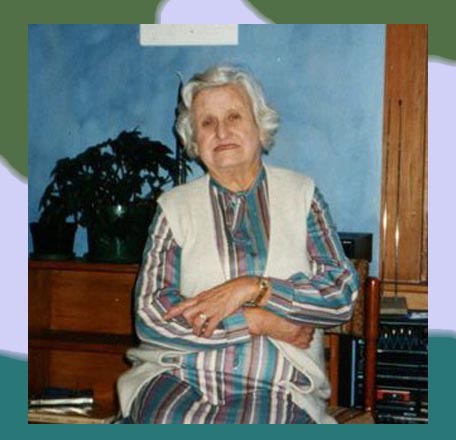One of the most influential women in my life has been my grandmother — Myrtle Sleyer.
Myrtle was the central person around who the family revolved and she was a big part of my daily life. She was there for all our special celebrations like birthdays and Christmas, and she came away on many of our family caravanning holidays.
She was a loving and kind grandmother who always gave lots of hugs, but she could also be a tough critic and a little bossy. A side of her I never really appreciated, especially when I was a child and regularly ordered to “go and help your mother.” Now that I’m an adult it seems like a perfectly reasonable request and even a little petty to mention, but it’s an enduring memory that now makes me smile.
Myrtle was also quite a quirky character. She usually followed bold statements with the proviso, “I can say what I like because I’m old” and she always recommended young girls wear short skirts because they “should show off their lovely young legs.” I think what she was trying to say was that young people should enjoy the vitality and freedom that comes with youth. As an older woman she understood how short that phase of life is.
I see a lot of my grandmother emerging in me as I grow older, especially her confidence to speak out about what she believed in and the pleasure she got from meeting people of all walks of life. She was a great walker and talker, and loved to go on long walks on the beach where she always struck up a conversation with whoever she met along the way. She looked for the best in people and was incredibly forgiving of people’s faults. I think Myrtle’s love and respect for people has had a big influence on me, not only in my personal life but also in my career as a history curator.
Family life was the most important thing to Myrtle. Closely followed by a nice cup of tea, always drunk from a bone china cup, often with a freshly baked homemade rock bun. She could never understand why I wanted to leave Whanganui, travel the world or go to university and study cultural anthropology. But really, it was just an extension of her longs walks on the beach and the chats with the people she met along the way.
-Lynette T.

